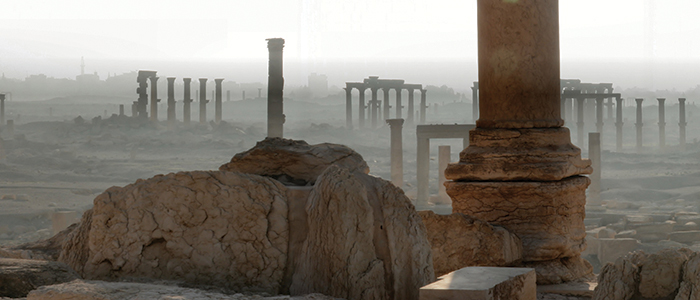J.C. Bach: Adriano in Siria
14, 16, 18 April 2015. 7.00pm - Britten Theatre, London, Royal College of Music, London
Intro
The premiére of Johann Christian Bach’s Adriano in Siria took place at the King’s Theatre, Haymarket on 26 January 1765, the eve of Mozart’s ninth birthday, and attracted such a large audience that scarcely a third of those assembled were able to get seats. The young Mozart would have heard at least one performance of the work during his childhood stay in London, and subsequently wrote of Bach: “I love him with all my heart, and have the highest regard for him.”
Classical Opera’s new production will be the first staging of the opera in modern times, and will mirror the music’s classical elegance, rarefied simplicity and lyrical beauty. The plot describes Osroa’s attempt to assassinate the Emperor Hadrian, and Hadrian’s subsequent magnanimity and forgiveness, and the score ranges from the fiery excitement and virtuosity of Farnaspe’s “Disperato in mar turbato” to the serene beauty and nobility of Emirena’s “Deh lascia, o ciel pietoso” and Farnaspe’s exquisite “Cara la dolce fiamma”.
Synopsis
Act One
Antioch, 2nd century AD. The Roman Emperor Hadrian (Adriano) has overthrown the local ruler Osroa, and although he is already engaged to Sabina, he has fallen in love with Osroa’s daughter Emirena. Farnaspe, a Syrian prince, declares that he himself loves Emirena, and demands that she be freed. Adriano consents, but Osroa, who has disguised himself as one of Farnaspe’s followers, suspects Adriano’s true motives and designs.
Meanwhile Aquilio, a Roman tribune who is in love with Sabina, has been encouraging Adriano’s feelings for Emirena, and has advised Emirena to feign indifference towards Farnaspe so as not to inflame Adriano’s jealousy and anger; Farnaspe is devastated when she reluctantly follows this advice.
Just as Adriano is declaring his love to Emirena, Sabina suddenly arrives, having travelled all the way from Rome to be reunited with her fiancé; both Emirena and Sabina give expression to their despair.
That night the imperial palace is set alight by Osroa’s soldiers, to avenge their defeat at the hands of Adriano. Farnaspe, having thrown himself into the flames to try to rescue Emirena, is accused of having started the fire and taken captive. Resolving their misunderstandings, the two lovers are reunited.
Act Two
Emirena confides her love for Farnaspe to Sabina, who helps the two lovers to escape.
During their flight they encounter Osroa, now disguised as a Roman, who claims he has killed Adriano. He has killed the wrong man, though, and when Adriano suddenly arrives on the scene, Farnaspe is unable to hide in time. Adriano accuses him of attempted regicide, but Emirena, not having recognised Osroa as her own father, accuses him to save her beloved. Adriano, furious, imprisons all three. In spite of Emirena and Farnaspe’s pleadings, Osroa remains unrepentant.
Act Three
Aquilio plays Sabina and Adriano off against eachother, refusing to let Sabina see Adriano and then telling Adriano that she has determined to leave Antioch. He then persuades the Emperor to reinstate the throne to Osroa in return for the hand of Emirena. Osroa pretends to accept this proposal, but then orders his daughter to show Adriano nothing but hatred.
Farnaspe reports that Adriano, livid with Osroa, has resolved to take him back to Rome in chains, as a token of his triumph. Osroa, considering this to be a fate worse than death, asks Emirena to leave and then asks Farnaspe to help him to take his own life. Farnaspe is unable to do so and laments his wretched state, content only in the fact that the cause of his suffering is noble.
Meanwhile, Aquilio’s deceit has finally been uncovered, and Adriano, moved by Sabina’s nobility of spirit (she has offered to relinquish her love for Adriano to Emirena), restores the kingdom and liberty to Osroa, consents to the marriage of Farnaspe and Emirena, forgives Aquilio, and promises to marry Sabina. All ends happily.
